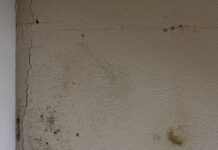by Mia Birkes
Russian figure skater Kamila Valieva is officially banned from competition for four years following an investigation into doping allegations from the 2022 Winter Olympics in Beijing. Valieva had failed a drug test following an earlier national competition in 2021 and tested positive for the drug trimetazidine. This banned substance, abbreviated as TMZ, is used to promote blood flow and helps your body use oxygen more efficiently according to WebMD. International tensions have been high since the investigation began as no medals would be officially awarded until the case was closed on Jan. 29, according to The New York Times.
On Jan. 30, the official decision was reached to penalize Valieva and the Russian team. This dropped Russia to bronze, while the U.S. was raised to gold and Japan to silver. The International Skating Union received immediate pushback from Russia with Canada in hot pursuit. Canada had been expecting to receive the bronze following Russia’s penalty and are threatening to appeal the ruling, per Skate Canada.
In another facet, The New York Times suggests that snubbing Canada may be the result of pressure from Russian officials and question if doping can truly be punished, especially in countries where it’s part of the state-sanctioned training program. Some have raised concerns about Valieva’s consent and if doping was truly her decision since she was just 15 years old at the time.
Valieva has combatted the claims throughout the duration of the investigation. According to NBC News, Valieva alleges that the TMZ in her system came from a strawberry dessert her grandfather prepared for her ahead of the 2021 national competition. Lawyers representing Valieva claim that her grandfather accidentally contaminated the dessert by “preparing the dish on a chopping board he also used to crush his heart medication.” This dessert, delicious as it must be, is mentioned 43 times in the collection of documents. However, the Court of Arbitration for Sport did not accept these claims as there is no concrete evidence of this occurrence.






